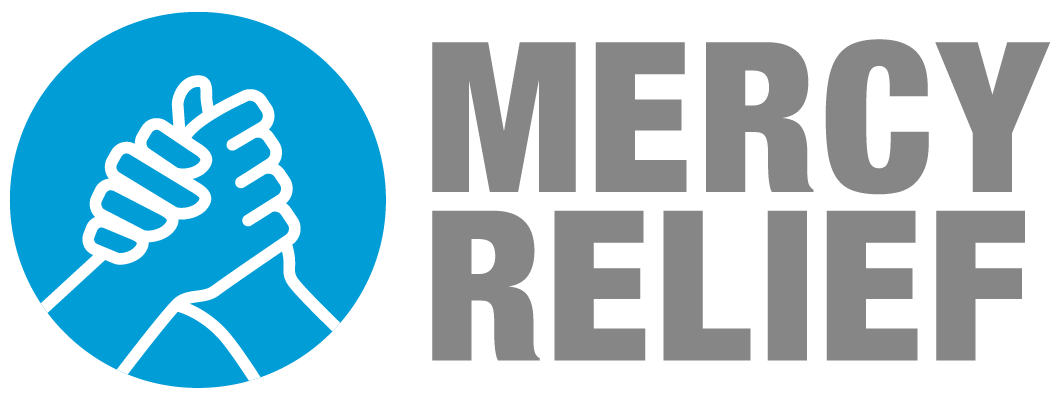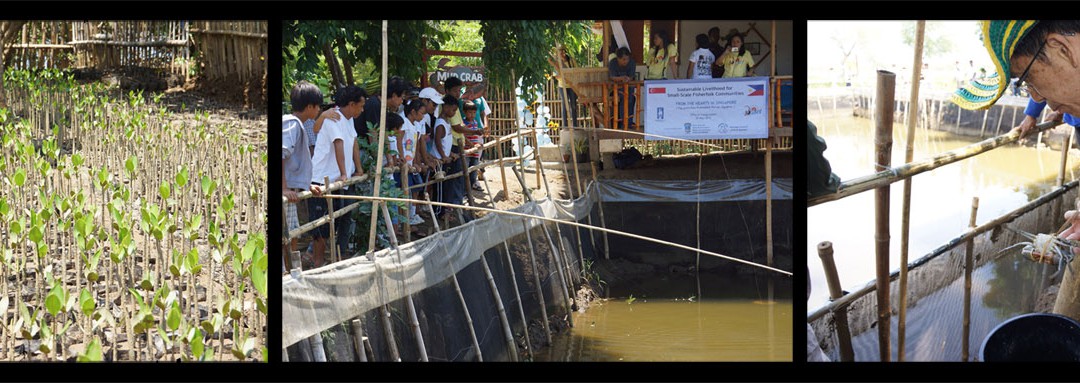After the onslaughts of Typhoons Ketsana and Morakot in 2009, which resulted in substantial devastation and human displacement, massive efforts were required to rebuild the lives of those affected. Having personally responded to the various crises, regional humanitarian organisation, Mercy Relief (MR), witnessed the resilience and determination of the Filipino communities to get back on tracks and move on into the future independently by improving their socio-economic and environmental conditions.
The Singapore-born relief and development NGO ploughed in more than SGD250,000 over the last year to help with the development of poor and vulnerable communities at two disaster-prone regions in the Philippines.
In the coastal areas of Botolan, a municipal of Zambales province in Luzon, mangrove conversion has been one of the key problems for the locals. Most of the areas have been converted into fishponds by private individuals or companies over the years. With the decreasing mangrove habitat, the recruitment of marine species such as crabs declined significantly. Catching of crabs in mangrove and river system was one of the main livelihood sources for the villagers. Since 2000, the average fish catch of small-scale fishers lessened by 60%. In recent times, 6 hours of fishing operation can only yield about 2 kilogrammes of catch, which is barely sufficient to feed a family of three. With the denuded mangrove areas, the community also became exposed to strong waves and flooding during monsoon seasons, causing damages to properties.
In July 2011, together with its long-term Filipino partner, SIKAT (Centre for the Development of Indigenous Science and Technology), MR implemented a 12-month sustainable livelihood project for the benefit of more than 380 families. The project aimed to increase community resilience by promoting diversified livelihood programmes which would increase household incomes and lessen the poverty incidence of and risks to coastal communities. Extensive efforts were put to rehabilitate the mangrove to regenerate marine life and serve as coastal protection. The construction of a new production centre for smoked milkfish and shrimp paste, including the introduction of a mudcrab culture, provided additional sources of income for the community.
(left): A mangrove nursery cultivates seedlings for planting at the coastal areas which provides villagers with livelihood opportunities and protection.
(Centre): Villagers from the different municipalities of the Zambales province gathered for the first harvest of the mudcrabs in Imalnod Barangay. Mudcrabs-breeding in man-made ponds provides farmers with alternative source of income especially during the typhoon seasons.
(Right): MR Vice-Chairman Ong Bon Chai inspecting the harvested mudcrabs during the project completion ceremony in Zambales.
The inclusion of the mangrove eco-tourism initiative also helped to rehabilitate the natural resources of the municipality and in tandem increase awareness on the need to and benefits of protecting the environment. Through the trainings in areas of management, book-keeping, marketing and publicity, the project which cost SGD110,000 was implemented to promote diversification of livelihood practices and create employment opportunities.
Over in Legazpi municipality, Bicol region, the locals have been deprived of effective economic activities which has led to a rise in poverty incidence which leads to higher level of vulnerability. Partnering with Philippines NGO, TABI (Mutual Aid for Bicol), a sizeable model farm was constructed to promote environment-friendly natural farming technologies to weed out previous practices of using chemical fertilisers which contaminate and degrade the soil quality, affecting the quality of harvests and land value in the longer run.
More significantly, the implementation of the “Pass it On” programme – where animal livestock were provided to chosen families and thereafter, through a structured redistribution system of female offsprings amongst the community – allowed for further and quicker reproduction of livestock. This accelerated the livestock population which in turn generates additional income. Thus far, the 11-month project, costing SGD150,000, have benefited around 400 farmer co-operators and their families.
MR Vice-Chairman Ong Bon Chai, who attended both inaugurations commented, “The two projects seek to integrate sustainable livelihoods enhancement initiatives with environmental and nature preservation to boost the economic standing of the disadvantaged communities. These diversified yet holistic initiatives would provide the community with enhanced capacity to face future challenges, working together with one another to preserve their environment and secure themselves better standards of living.”
(left): The completion ceremony at Legazpi City was led by Chairperson of TABI, Reverend Joel R. Camba and witnessed by Legazpi City’s Mayor Carmen Geraldine, MR Vice Chairman Ong Bon Chai, local officials and villagers.
(Centre): MR Vice-Chairman Ong visits the 12,000sqm model farm which was constructed to educate and train farmers and villagers on sustainable natural farming technologies.
(Right): The introduction of livestock distribution system not only provides villagers with alternative source of income, but also improved their dietary standards with the increased supply of high-protein meat and by-products.
About Mercy Relief
Mercy Relief is a Singaporean humanitarian organisation which engages in both disaster relief and sustainable development programmes. It was established in 2003 as an independent non-governmental humanitarian charity responding to the human tragedies in Asia. Mercy Relief’s aid programme focuses on providing timely and effective assistance to disaster-stricken communities and has maintained the delivery of emergency aid within 72 hours from the point of appeal for assistance.
In the past 12 years, Mercy Relief has disbursed over S$32 million in aid across 40 disaster relief and 53 sustainable development initiatives. Mercy Relief has impacted an aggregate of 2 million lives in 24 countries and areas, namely Afghanistan, Bangladesh, Cambodia, China, DPR Korea, India, Indonesia, Iran, Iraq, Japan, Laos, Lebanon, Malaysia, the Maldives, Myanmar, Nepal, Pakistan, Palestine, the Philippines, Sri Lanka, Taiwan, Thailand, Vietnam and Yemen.
For more information, you may call us at 6514 6322 or email corporateaffairs@mercyrelief.org




